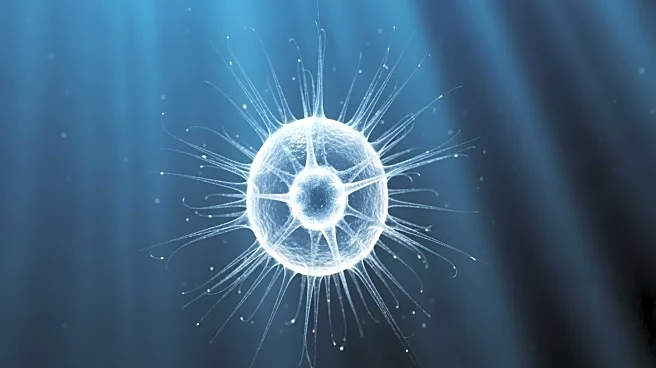What's Happening?
Researchers from Charles University in Prague have discovered Solarion arienae, a rare unicellular eukaryote that introduces a new branch in the eukaryotic tree of life. This organism, found in a marine
ciliate culture, represents a newly defined phylum and forms part of a new supergroup named Disparia. Solarion arienae retains ancestral mitochondrial features, offering insights into early eukaryotic evolution. The discovery was made possible through genomic sequencing and phylogenomic analyses, revealing Solarion's unique lineage and its close relative, Meteora sporadica.
Why It's Important?
The discovery of Solarion arienae is crucial for understanding the evolution of eukaryotic cells, as it provides a glimpse into ancient biological processes. This organism's unique mitochondrial features challenge existing theories about eukaryotic evolution, potentially leading to new scientific paradigms. The identification of the Disparia supergroup highlights the diversity of life and underscores the importance of exploring under-researched environments. This finding may inspire further studies into microbial life, expanding knowledge of biodiversity and evolutionary biology.
What's Next?
Researchers will likely continue to investigate Solarion arienae and its relatives to uncover more about their biology and evolutionary significance. This may involve exploring environmental DNA databases and conducting field studies to locate other members of the Disparia supergroup. The discovery encourages the use of cultivation-based methods in protist research, which could lead to the identification of more rare and ancient lineages. Collaborative efforts between international research teams may enhance the understanding of these organisms and their role in the ecosystem.











